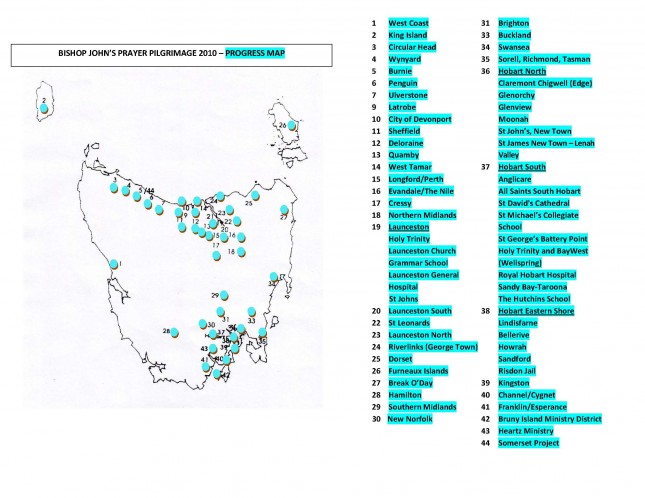At the conclusion my Ordination Service as Bishop of Tasmania on 25 July 2000, I prayed the following blessing at the Cathedral’s entrance. The congregation at today’s Cathedral thanksgiving celebration joined with me in praying it.
The blessing grew from my prayer for God’s work in Tasmania in the months prior to my ordination. I chose three aspects of God’s person on which to base the blessing: God is life, light, and love. I then wrote a stanza of the blessing around each of these aspects of God’s person.
A Blessing for Tasmania
God of all Life, Bless in abundance the lives of the people of Tasmania. Enrich our society with relationships that deepen our common life. Grant seasonal weather to our State, And enable us, by your grace, to create life-enriching work for our unemployed. God of all Life, bless Tasmania. God of all Light, Bless this State with leadership that is honest and caring. Send the light of your wisdom on our work and our play. Shine the light of your justice on all our dealings, So that these islands may reflect your light in all the world. God of all Light, bless Tasmania. God of all Love, Bless Tasmania with your love, in all we say and do. Help us to love one another, as neighbours and friends. Care for families whose young have left these shores. And by your good Spirit, ignite our love for Christ. God of all Love, bless TasmaniaIn the Name of God: the Father, the Son and the Holy Spirit. AMEN.
By Bishop John Harrower Ordination as Bishop of Tasmania The Cathedral Church of St David, Hobart St James’ Day, 25 July 2000I continue to pray this blessing for Tasmania and have done so throughout my Prayer Pilgrimage.
See also Prayer: Ordination of a bishop and Thanking God and exhorting a bishop and Celebrating 10 years in Tasmania!


